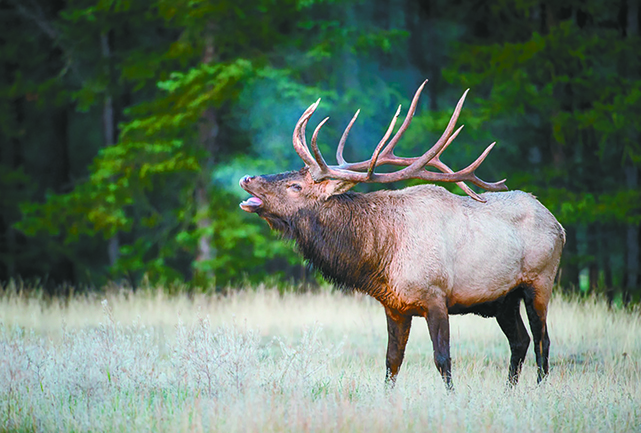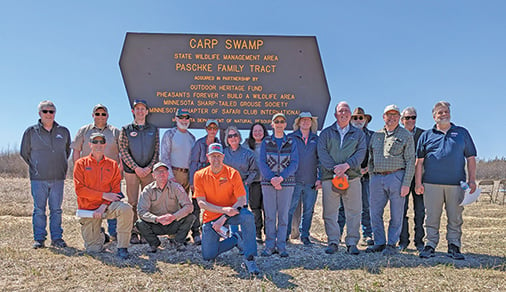Beyond Minnesota: Police, customs seize live animals, more in global trafficking scheme – Outdoor News

Paris (AP) — Interpol (International Criminal Police Organization) and the World Customs Organization said Dec. 12 they seized 53 primates, four big cats, and more than 1,300 birds, as well as some 300 kilograms of ivory, thousands of turtle eggs, and rhino horns, leopard skins, and lion teeth and paws in their sweeping annual crackdown on wildlife and timber trafficking that this year covered 133 countries.
Interpol said it coordinated around 500 arrests worldwide from Oct. 2-27. More than 2,000 confiscations of animals and plants were made. This year’s operation marked the highest participation in Operation Thunder since its inception in 2017.
The live animals were destined for the pet trade, egg harvesting, or as a source of meat, while the wildlife parts are used for jewelry or rituals.
“Important and endangered animals, birds, and plants are being put at risk of extinction by wildlife and timber traffickers,” said Interpol Secretary General Jürgen Stock. “These appalling crimes not only deprive the world of unique animals and plants, but also countries of their natural assets.”
MORE COVERAGE FROM OUTDOOR NEWS:
Men charged with killing 3,600 birds, including bald and golden eagles, to sell on black market
Montana man sentenced to prison for illegally selling eagle feathers, parts, in South Dakota
As part of the operation, hundreds of vehicles, including cars, trucks, and cargo ships, were searched at checkpoints across all regions. Specialized sniffer dogs and X-ray scanners were deployed to detect hidden wildlife and camouflaged timber shipments. Hundreds of parcels, suitcases, vehicles, boats, and cargo transporters were examined.
Interpol stresses the links between environmental crime and other forms of crime, including violence, corruption, and financial crime.
WCO highlighted the critical role of customs in disrupting criminal networks through strict border controls, intelligence sharing, and technological advancements.
WCO Secretary General Kunio Mikuriya said this involves “enforcing strict controls at borders” to thwart traffickers and “intelligence sharing, championing collaboration and adopting technological advancements” in customs operations.
Operation Thunder is an annual joint-operation coordinated by Interpol and the WCO, with the backing of intergovernmental organizations.
MONTANA
Groups Sue Over Lack of Railroad Plan to Reduce Grizzly Deaths
Helena, Mont. (AP) — Two wildlife conservation groups have filed a lawsuit against BNSF Railway over delays in finalizing a plan to reduce the number of federally protected grizzly bears that are killed by trains in northwestern Montana and northern Idaho.
WildEarth Guardians and the Western Environmental Law Center filed the lawsuit in federal court in Missoula on Dec. 14, arguing BNSF and other railroads that use their tracks, including Amtrak, have been killing grizzly bears without an incidental take permit for decades. Such permits, required under the U.S. Endangered Species Act, allow a certain number of protected animals to be killed in exchange for efforts by a company to try to reduce the deaths.
BNSF Railway says that even though it doesn’t have a permit, it is taking measures to prevent grizzly bear deaths.
The railroad’s first efforts to obtain an incidental take permit began in 2004 and have still not been completed nearly 20 years later, the lawsuit filed by the wildlife conservation groups says.
The railway’s June 2020 draft plan for reducing the number of grizzly bears killed was put out for public comment in January 2021, but it still hasn’t been approved by the U.S. Fish and Wildlife Service. The railroad seeks a seven-year permit allowing it to kill an average of 2.5 grizzly bears per year in exchange for efforts to reduce train strikes and to cut other human-caused deaths of grizzly bears elsewhere in the Northern Continental Divide Ecosystem.
BNSF, which is headquartered in Fort Worth, Texas, also said it expected grizzly bears to be removed from the endangered species list before the permit expires and left open the possibility of relaxing or modifying its terms if that happened. Montana asked the federal government to lift Endangered Species Act protections for grizzly bears in the northern Rocky Mountains in December 2021, and the Biden administration said in February that it would consider it.






